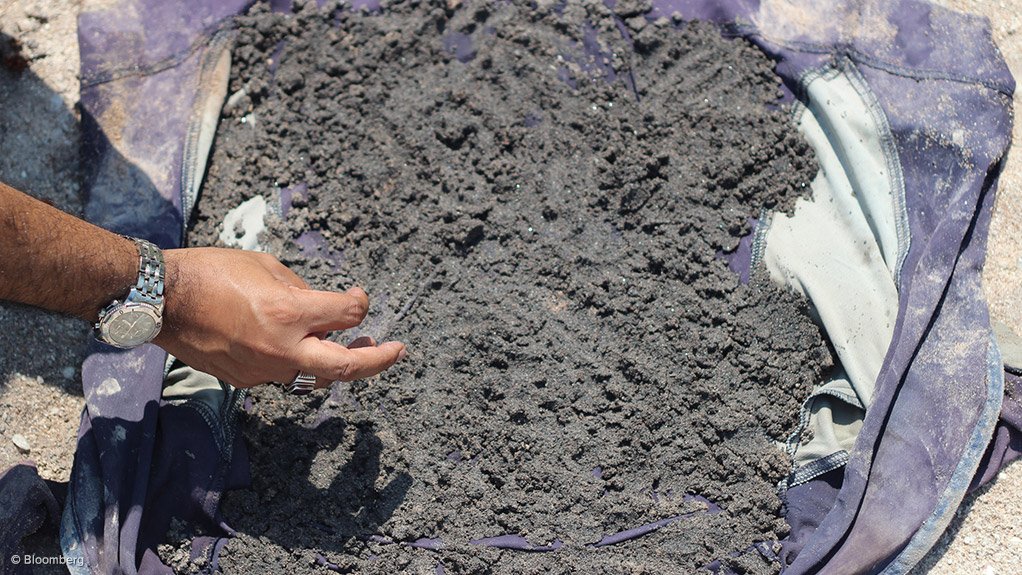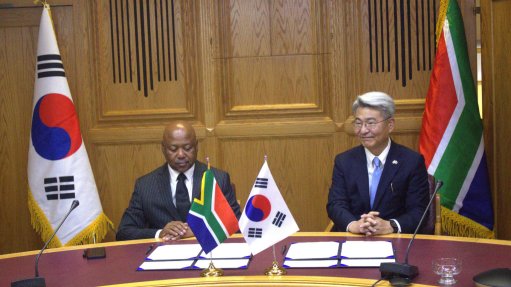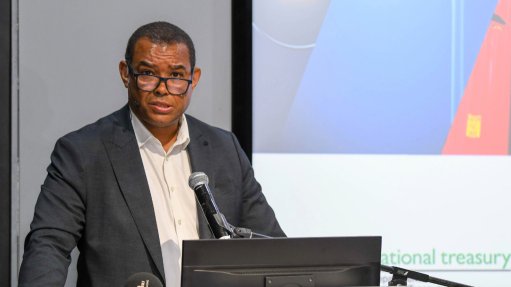Mineral smuggling from Congo to Rwanda at ‘unprecedented levels’, UN says
Mineral smuggling from eastern Democratic Republic of Congo into neighbouring Rwanda has reached “unprecedented levels” amid the occupation of a large swath of the region by Rwanda-backed M23 rebels, according to a UN experts report.
The illegal trade has “jeopardised” tin, tantalum and tungsten exports from the region, according to a copy of the report due to be released this week by the UN Security Council and seen by Bloomberg.
“Once in Rwanda, the looted minerals were mixed with local production, effectively laundering them into the downstream supply chain under the guise of Rwandan origin,” according to the report. “This posed a serious threat to the integrity and credibility of mineral traceability.”
Last year Rwanda and Congo accounted for around 60% of world production of tantalum, a mineral used in electronics, according to the US Geological Survey.
In a US-backed peace deal signed last week in Washington, Rwanda and Congo agreed to stop their fighting and support for proxy rebel groups like the M23. The two sides also committed to exploring joint economic opportunities with potential US investment.
But the UN experts document how Rwanda has already expanded its economic interests in Congo through the M23 occupation.
Rwanda’s goal is to “control the territory of the DRC and its natural resources,” according to the report, which covers a yearlong period through April 20.
The country’s army played a “critical role” in M23’s expansion and occupation of new territories, which culminated this year with the taking of eastern Congo’s two main cities, according to the report.
“Its use of advanced military equipment, including jamming systems, short-range air defence systems and armed drones constitutes a violation” of UN sanctions, the experts said.
M23 and Rwandan soldiers have carried out “a systematic campaign of repression in occupied areas, including extrajudicial killings, arbitrary arrests, torture, enforced disappearances, and night raids on hospitals,” they said.
At least 6 000 Rwandan troops were in Congo at the beginning of the year working with the M23, according to the report. Between 1 000 and 1 500 remained as of late April, with “several thousand” troops positioned in Rwanda along the border. Rwanda has denied backing the M23 and said its army has taken “defensive measures.”
A spokesperson for Rwanda’s government, Yolande Makolo, said the group of experts “misrepresents Rwanda’s longstanding security concerns” in the region.
M23 re-launched a rebellion in 2021 to protect the rights of eastern Congo’s Tutsi population and to fight a rebel group known as the FDLR that has links to the perpetrators of the 1994 genocide of Rwanda’s Tutsis.
Congo has committed to “neutralize” the FDLR as part of the US-backed peace deal. The UN experts report shows Congo’s army has been working with the FDLR to fight the M23.
Rwanda remains fully committed to the implementation of the peace deal, Makolo said, “including the neutralization of the FDLR, which will enable the lifting of Rwanda’s defensive measures, the safe return of refugees to their home areas, and much-needed stability in our region.”
Mineral smuggling is rampant throughout Congo’s east and the gold trade in particular is supporting a multitude of armed groups, Congolese politicians, and neighbouring countries, according to the report.
Gold smuggled from Congo’s northeastern Ituri province “significantly inflated Uganda’s gold refining and export figures,” the experts said. “A large part of the gold refined and exported in Uganda was thus ineligible for trade” under the UN Group of Experts’ due diligence guidelines for responsible mineral exports.
Uganda exported nearly $3.5-billion worth of gold in 2024 according to central bank data estimates.
Ugandan army spokesman Felix Kulayigye said the accusations were “redundant” and “people who have been stealing Congolese resources have been known for centuries.”
Rwandan authorities also inflated domestic production figures of tin, tungsten and tantalum in order to disguise its exporting of smuggled minerals from Congo, according to the report.
“The Rwanda Development Board declared annual domestic production of 8 000 t to 9 000 t” of tantalum, tin and tungsten ores, which was “contradicted by data from the National Institute of Statistics of Rwanda, independent geological studies,” and an industry group monitoring the mineral supply chain from the region, the experts said.
Makolo said that unlike eastern DRC, Rwanda “operates a regulated and formalized mining sector, with investment in mineral processing and other infrastructure that allows for commercial refining of minerals and appropriate certification.”
Article Enquiry
Email Article
Save Article
Feedback
To advertise email advertising@creamermedia.co.za or click here
Comments
Announcements
What's On
Subscribe to improve your user experience...
Option 1 (equivalent of R125 a month):
Receive a weekly copy of Creamer Media's Engineering News & Mining Weekly magazine
(print copy for those in South Africa and e-magazine for those outside of South Africa)
Receive daily email newsletters
Access to full search results
Access archive of magazine back copies
Access to Projects in Progress
Access to ONE Research Report of your choice in PDF format
Option 2 (equivalent of R375 a month):
All benefits from Option 1
PLUS
Access to Creamer Media's Research Channel Africa for ALL Research Reports, in PDF format, on various industrial and mining sectors
including Electricity; Water; Energy Transition; Hydrogen; Roads, Rail and Ports; Coal; Gold; Platinum; Battery Metals; etc.
Already a subscriber?
Forgotten your password?
Receive weekly copy of Creamer Media's Engineering News & Mining Weekly magazine (print copy for those in South Africa and e-magazine for those outside of South Africa)
➕
Recieve daily email newsletters
➕
Access to full search results
➕
Access archive of magazine back copies
➕
Access to Projects in Progress
➕
Access to ONE Research Report of your choice in PDF format
RESEARCH CHANNEL AFRICA
R4500 (equivalent of R375 a month)
SUBSCRIBEAll benefits from Option 1
➕
Access to Creamer Media's Research Channel Africa for ALL Research Reports on various industrial and mining sectors, in PDF format, including on:
Electricity
➕
Water
➕
Energy Transition
➕
Hydrogen
➕
Roads, Rail and Ports
➕
Coal
➕
Gold
➕
Platinum
➕
Battery Metals
➕
etc.
Receive all benefits from Option 1 or Option 2 delivered to numerous people at your company
➕
Multiple User names and Passwords for simultaneous log-ins
➕
Intranet integration access to all in your organisation





















